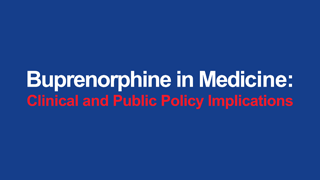Prescribers' perceptions on the impact of hydrocodone rescheduling on geriatric pain management: A qualitative study
DOI:
https://doi.org/10.5055/jom.2018.0464Keywords:
hydrocodone rescheduling, physicians, pain management, ethical concernsAbstract
Objective: To qualitatively assess prescribers’ perceptions regarding the consequences associated with hydrocodone rescheduling among geriatric patients being discharged from inpatient settings.
Design: This was a cross-sectional study.
Setting: Two focus groups were conducted by a trained facilitator in a metropolitan academic medical center in January 2016.
Participants: Prescribers who manage noncancer pain for geriatric patients were recruited. Focus groups were recorded, transcribed, and then analyzed using ATLAS.ti Qualitative Data Analysis software. Codes were derived from six primary research questions and results were summarized into key themes regarding the impact of rescheduling.
Main outcome measures: Prescribers’ perceptions regarding hydrocodone rescheduling.
Results: Prescribers mentioned that they review the prescription monitoring program (PMP) more often before prescribing opioids after rescheduling. They expressed concern regarding the required special serialized prescription forms needed to issue schedule II prescriptions. This led to substituting hydrocodone with potentially less effective pain medications, the inability to issue refills on hydrocodone prescriptions, and an ethical concern over prescribing hydrocodone to patients not under their direct care. Additionally, rescheduling has affected the coordination of care upon discharge, as patients moving to long-term care or skilled nursing facilities may not have adequate pain management when transferred.
Conclusions: The majority of physicians felt rescheduling negatively impacted both practical and ethical aspects of patient care related to pain management after discharge. Rescheduling has changed physicians’ hydrocodone prescribing patterns, leading to more caution when prescribing hydrocodone and greater use of the PMP. Future studies should assess geriatric patients’ satisfaction and quality of life regarding pain management since hydrocodone was rescheduled.
References
Seth P, Rudd RA, Noonan RK, et al.: Quantifying the epidemic of prescription opioid overdose deaths. Am J Public Health. 2018; 108(4): 500-502.
Rosenblum A, Parrino M, Schnoll SH, et al.: Prescription opioid abuse among enrollees into methadone maintenance treatment. Drug Alcohol Depend. 2007; 90 (1): 64-71.
Covvey JR: Recent developments toward the safer use of opioids, with a focus on hydrocodone. Res Social Adm Pharm. 2015; 11 (6): 901-908.
Traynor K: FDA advisers support rescheduling of hydrocodone products. Am J Health Syst Pharm. 2013; 70 (5): 383-384.
IQVIA: Top 25 medicines by dispensed prescriptions (U.S.). 2017. Available at https://www.iqvia.com/institute/reports/medicines-use-and-spending-in-the-us-a-review-of-2016. Accessed February 10, 2017.
Substance Abuse and Mental Health Services Administration: Highlights of the 2011 Drug Abuse Warning Network (DAWN) findings on drug-related emergency department visits. 2013. Available at https://www.samhsa.gov/data/sites/default/files/DAWN127/DAWN127/sr127-DAWN-highlights.htm. Accessed December 12, 2017.
United States Department of Health and Human Services: HHS acting secretary declares public health emergency to address national opioid crisis. 2017. Available at https://www.hhs.gov/about/news/2017/10/26/hhs-acting-secretary-declarespublic-health-emergency-address-national-opioid-crisis.html. Accessed May 25, 2018.
Drug Enforcement Agency: Schedules of controlled substances: Rescheduling of hydrocodone combination products from schedule III to schedule II. 2014. Available at https://www.deadiversion.usdoj.gov/fed_regs/rules/2014/fr0822.htm. Accessed February 10, 2017.
Seago S, Hayek A, Pruszynski J, et al.: Change in prescription habits after federal rescheduling of hydrocodone combination products. Proc (Bayl Univ Med Cent). 2016; 29 (3): 268-270.
McCarthy M: Prescriptions for hydrocodone plummet after US tightens prescribing rules. BMJ. 2016; 352: i549.
Twillman RK, Kirch R, Gilson A: Efforts to control prescription drug abuse: Why clinicians should be concerned and take action as essential advocates for rational policy. CA Cancer J Clin. 2014; 64 (6): 369-376.
Jones CM, Lurie PG, Throckmorton DC: Effect of US Drug Enforcement Administration's rescheduling of hydrocodone combination analgesic products on opioid analgesic prescribing. JAMA Intern Med. 2016; 176 (3): 399-402.
Pharmacy Times: Pharmacy associations oppose rescheduling of hydrocodone combination products. 2014. Available at https://www.pharmacytimes.com/publications/issue/2014/june2014/pharmacy-associations-oppose-rescheduling-ofhydrocodone-combination-products. Accessed February 10, 2017.
Fleming ML, Wanat MA: To prescribe codeine or not to prescribe codeine? J Pain Palliat Care Pharmacother. 2014; 28 (3): 251-254.
Gudin J, Lee AJ: The downside of up scheduling. Pain Med. 2013; 14 (11): 1628-1629.
Thornton JD, Dwibedi N, Scott V, et al.: Predictors of transitioning to incident chronic opioid therapy among working-age adults in the United States. Am Health Drug Benefits. 2018; 11 (1): 12-21.
Yiannakopoulou E: Pharmacogenomics and opioid analgesics: Clinical implications. Int J Genomics. 2015; 2015: 368979.
American Academy of Pain Medicine: American Academy of Pain Medicine comments on rescheduling hydrocodone: Patient and public health considerations. 2013. Available at http://www.painmed.org/press/position-statements/. Accessed March 5, 2014.
Texas State Board of Pharmacy: Pharmacy.texas.gov: Texas PMP. Official prescription forms. 2018. Available at https://www.pharmacy.texas.gov/PMP/. Accessed July 10, 2018.
State of Texas Senate: Senate Bill 406. Delegation to advanced practice registered nurses and physician assistants. Texas S.B. 406 – Delegation to Advanced Practice Registered Nurses and Physician Assistants, 83rd Legislative Session. 2013. Available at https://capitol.texas.gov/tlodocs/83R/billtext/pdf/SB00406F.pdf. Accessed February 10, 2017.
Martin PY, Turner BA: Grounded theory and organizational research. J Appl Behav Sci. 1986; 22 (2): 141-157.
Fleming ML, Driver L, Sansgiry SS, et al.: Physicians’ intention to prescribe hydrocodone combination products after rescheduling: A theory of reasoned action approach. Res Social Adm Pharm. 2017; 13 (3): 503-512.
Golembiewski J: Rescheduling of hydrocodone combination products: Potential impact and alternatives for postoperative pain management. J Perianesth Nurs. 2015; 30 (3): 244-248.
Fricke JR Jr, Karim R, Jordan D, et al.: A double-blind, single-dose comparison of the analgesic efficacy of tramadol/acetaminophen combination tablets, hydrocodone/acetaminophen combination tablets, and placebo after oral surgery. Clin Ther. 2002; 24 (6): 953-968.
Brushwood DB: Interpreting the Schedule II partial fill rule. 2015. Available at https://www.pharmacist.com/interpretingschedule-ii-partial-fill-rule. Accessed February 10, 2017.
Schultz S, Chamberlain C, Vulcan M, et al.: Analgesic utilization before and after rescheduling of hydrocodone in a large academic level 1 trauma center. J Opioid Manag. 2016; 12 (2): 119-122.
Barrett K, Watson A: Physician perspectives on a pilot prescription monitoring program. J Pain Palliat Care Pharmacother. 2005; 19 (3): 5-13.
Feldman L, Williams KS, Coates J, et al.: Awareness and utilization of a prescription monitoring program among physicians. J Pain Palliat Care Pharmacother. 2011; 25 (4): 313-317.
Ulbrich TR, Dula CA, Green CG, et al.: Factors influencing community pharmacists’ enrollment in a state prescription monitoring program. J Am Pharm Assoc (2003). 2010; 50 (5): 588-594.
Bao Y, Pan Y, Taylor A, et al.: Prescription drug monitoring programs are associated with sustained reductions in opioid prescribing by physicians. Health Aff (Millwood). 2016; 35 (6): 1045-1051.
Dowell D, Haegerich TM, Chou R: CDC guideline for prescribing opioids for chronic pain—United States, 2016. JAMA. 2016; 315 (15): 1624-1645.
Published
How to Cite
Issue
Section
License
Copyright 2005-2024, Weston Medical Publishing, LLC
All Rights Reserved












